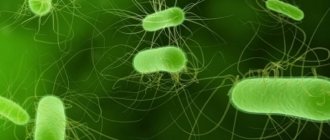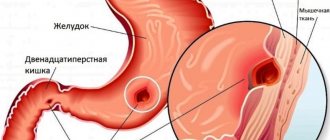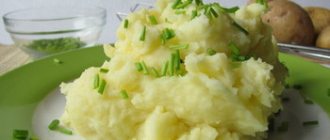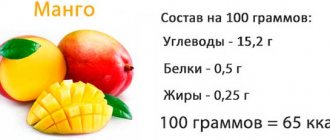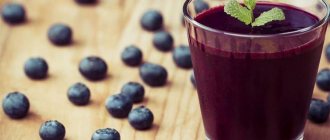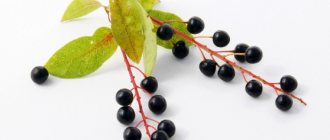Treatment of diarrhea is impossible without following a diet. The purpose of dietary restrictions is to reduce the load on the digestive organs and strengthen the stool. There are mechanical and chemical factors that cause intestinal irritation. During illness, you should not eat foods that cause diarrhea. A diet for diarrhea in an adult helps eliminate the consequences of dysfunction of the digestive system.
What are the dangers of diarrhea?
The main danger of loose stools (diarrhea) is dehydration, leading to serious complications. The painful condition of diarrhea is characterized by symptoms such as:
- dry mucous membranes in the mouth;
- white coating on the tongue and palate;
- constant feeling of thirst;
- lack of urination;
- dehydration and weight loss;
- decreased temperature and blood pressure, increased heart rate.
A very dangerous consequence of prolonged diarrhea is liver dysfunction. A decrease or absence of urination indicates a disruption in the functioning of the kidneys to eliminate waste products. Decay products that are not removed from the body accumulate, and this leads to poisoning of the body, damage to all its organs. Prevention of dehydration should begin as soon as it becomes clear that liquid bowel movements are not isolated. Take Regidron solution, salted water, chamomile decoction.
Types of diarrhea
There are 3 forms of diarrhea, due to the physiological characteristics of the body, the presence of certain diseases and the structure of the diet.
- Easy
. Duration ranges from 1 to several days. The structure of the stool is liquid, but not watery. - Spicy
. Lasts from 1 to 2 weeks. The consistency of the stool resembles water. - Chronic
. Time period: 2 weeks or more.
Normally, the daily weight of feces ranges from 100 to 300 g. With diarrhea, it can reach 1 kg.
Causes of diarrhea
Food poisoning ranks first on the list of causes of diarrhea that cause this unpleasant condition. Almost any visually unsuspicious food can be contaminated with bacteria, viruses or parasites, which “detonate” once they enter the human stomach. Typically, with food poisoning, the symptoms of diarrhea are mild and short-lived, but in some cases, without appropriate treatment, the disease can lead to dehydration, kidney failure and even death.
A digestive disorder called diarrhea is an acute protective reaction of the body at any age to various irritating agents that enter the human gastrointestinal tract. Such agents include allergic, viral or toxic substances. The exact cause of diarrhea can be determined solely by the results of laboratory tests, but in most cases this is not required. The disease goes away on its own without medical intervention.
Diarrhea symptoms
Stool disorder often occurs with severe spasmodic pain in the abdominal cavity, vomiting and increased body temperature. Depending on the form of diarrhea, the patient's condition may vary.
Table 1. Forms of diarrhea
| Type of diarrhea | Symptoms |
| Spicy. | Watery stool. In the feces, inclusions of mucus and blood are found. This type of disorder occurs with frequent bouts of vomiting, bloating and rapid weight loss. Dehydration of the body leads to a constant feeling of thirst, increased fatigue, lethargy and dry skin. |
| Chronic. | Pain in the abdomen and constant false urge to have a bowel movement. The structure of stool varies from liquid to denser and oilier. |
If diarrhea is caused by pathological processes occurring in the colon, pus is found in the stool.
How to drink?
Most often, diarrhea does not pose a serious threat to health and goes away on its own within a few days.
But in severe cases, especially in young children, it can be dangerous due to dehydration, so a large fluid intake at this time is mandatory.
If diarrhea is accompanied by vomiting, then you need to drink often and in small portions:
- 1 dessert or tablespoon every 5 minutes.
If the symptoms are expressed only in intestinal upset, then you need to drink based on thirst:
- Approximate dosage: 200-250 ml. fluids per episode of diarrhea.
To avoid disturbing the water-salt balance, you need to drink liquids that contain salt and sugar.
What is recommended:
- mineral alkaline water without gas;
- salted broths;
- weak tea.
To prevent and treat dehydration, you can use pharmaceutical rehydration solutions. They can be used in both adults and children.
You can't drink:
- carbonated drinks;
- juices;
- black strong tea;
- coffee.
These products are irritating to the stomach and intestines and can only make you feel worse.
Diet for diarrhea
List of permitted products
To treat diarrhea, gastronomic preferences should be reconsidered.
The daily menu should be based on the following items:
- low-fat broth;
- egg flakes;
- rice water;
- crackers made from premium wheat;
- baked apples;
- steam omelette;
- hard boiled eggs;
- pomegranate juice;
- steamed fish;
- whole milk;
- lingonberry compote;
- bananas;
- fish cutlets;
- meatballs;
- stale bread;
- rice and buckwheat porridge;
- boiled lean meat;
- grated cottage cheese;
- boiled vegetables;
- weak tea;
- cocoa.
Food should be consumed only when a noticeable feeling of hunger appears. If you have diarrhea, you should completely avoid eating spices, fried or fatty foods.
The introduction of foods containing tannins into the diet will help stabilize intestinal activity. Blueberries, quince, dogwood and bird cherry are irreplaceable helpers in the fight against diarrhea.
Forbidden foods for diarrhea
All foods that cause fermentation and irritate the mucous membranes of the stomach and intestines are prohibited. Strictly prohibited for diarrhea:
- fresh and raw vegetables (white cabbage, tomatoes, cucumbers, radishes, radishes);
- fresh fruits (apples, green bananas, all citrus fruits, etc.);
- high-calorie foods (fatty fish, meat, lard, butter and vegetable oil);
- canned, pickled foods, including home canned foods;
- nuts and legumes;
- mushrooms;
- sweets, confectionery, gray and brown bread;
- dairy and fermented milk products (whole milk, kefir, cottage cheese);
- various sauces (ketchup, mayonnaise), spices and other seasonings;
- all alcoholic drinks, carbonated drinks, coffee.
In the acute period, on the first day, food is completely excluded, and large fluid intake is indicated. From day 2, or if your condition is stable, you can start eating only recommended foods. Products are used in processed form, boiled or steamed. Frying is excluded.
Dietary table No. 4
This diet with products is monotonous and inferior in physiological properties. Therefore, it is prescribed for a period of 2 to 7 days. When preparing dishes, only the permitted products described above are used. The diet according to the numbered dietary table No. 4 is fractional and is divided into:
- breakfast;
- lunch;
- dinner;
- afternoon snack;
- dinner;
This diet reduces the consumption of fatty and carbohydrate foods. It is also characterized by rapid restrictions on mucosal pathogens. To prevent damage to the inflamed mucosa and protect it from the effects of thermal, chemical and mechanical irritants, food is taken warm, without spices or sweeteners, in liquid or puree form. Preference is given to boiled or steamed dishes.
The duration of the diet depends on the cause of diarrhea and the duration of treatment. After recovery and normalization of stool, doctors recommend adhering to the same dietary principles for two weeks, gradually adding foods prohibited by the diet to the diet.
Table 2. Features of diet No. 4
| Criterion | Characteristic |
| Indications. | Chronic diseases and severe dyspeptic disorders that occur after intestinal operations. |
| Special purpose. | Unloading the digestive organs and reducing the activity of fermentation processes. Providing the body with useful elements. |
| General characteristics. | Complete rejection of fiber, pickles, fresh milk and smoked meats. |
Nutrition for loose stools should first of all be balanced. That is, the diet should contain a sufficient amount of proteins, fats and carbohydrates. Although the amount of fats and carbohydrates should be reduced, they cannot be completely eliminated. But any daily routine includes lunch, breakfast and dinner. We have already decided that the portions are small, but you need to eat every 3 hours.
Fiber-fortified or solid foods are not recommended.
Table 3. Approximate menu for 7 days
| Day/Number of meals | 1 | 2 | 3 | 4 | 5 | 6 |
| 1 | Tea without sugar, still water, rice broth with breadcrumbs | Tea without sugar, still water, rice broth with breadcrumbs | Tea without sugar, still water, rice broth with breadcrumbs | Tea without sugar, still water, rice broth with breadcrumbs | Tea without sugar, still water, rice broth with breadcrumbs | Tea without sugar, still water, rice broth with breadcrumbs |
| 2 | oatmeal; tea; 1 egg | rice pudding | grated boiled zucchini; apple compote; steamed hake fillet | quince jelly | chopped apples and pears; cottage cheese; cocoa | rosehip infusion |
| 3 | chopped boiled buckwheat; curd mixture; fruit tea | quince jelly | meatballs; Apple juice; semolina | blueberry drink | omelette; rosehip infusion; fish meatballs | pear compote |
| 4 | semolina; Herb tea; steam omelette | dogwood vein | rice soup with light broth; meatballs; apple compote | oatmeal jelly | cottage cheese mixed with grated pear; white crackers; steam cutlets; tea | carrot juice |
| 5 | rice soup; fruit drink | apple baked in the oven | oatmeal soup; fish balls; tea | semolina pudding | cottage cheese and rice casserole; blueberry jelly | rosehip tincture |
| 6 | buckwheat porridge; Herb tea; cottage cheese | bird cherry jelly | semolina soup with meatballs; Mint tea; crackers | rice congee | cottage cheese pudding; fruit jelly; 1 egg | Apple juice |
| 7 | rice pudding; cocoa | jelly | semolina and potato soup; steamed rabbit meat | buckwheat pudding | cottage cheese; cocoa; omelette | chamomile tea |
It is advisable to cook eggs soft-boiled, juices should be diluted with warm water, broths should be cooked from low-fat varieties of fish or meat. Steamed hake or pollock are excellent fish dishes. Due to the fact that rice perfectly adsorbs toxic substances, the emphasis should be on rice porridge. However, it should be remembered that along with elements harmful to the body, it removes beneficial salts. This is fraught with water-electrolyte imbalance.
The diet is well tolerated due to the timely supply of all elements necessary for the human body. It allows you to stabilize stool in the shortest possible time, relieve pain and relieve inflammation of the gastrointestinal tract.
Diet
Loose stools cause a sharp deterioration in the condition. Weakness appears and appetite decreases. Eating food brings discomfort and provokes new urges to defecate. A complete lack of nutrition is dangerous, since all useful substances are washed out with feces. During illness, special requirements are placed on food. First of all, it should not aggravate the patient’s condition.
Basic rules of nutrition for diarrhea:
- eat in small portions, but often;
- do not consume foods that cause gas formation or irritation of the intestinal mucosa;
- exclude spicy and fatty foods;
- dinner should take place 4 hours before bedtime;
- the food temperature should be close to body temperature (slightly warm);
- a puree-like consistency of the dish is preferred;
- drinking plenty of fluids.
On the first day, doctors recommend eating boiled rice, lean cereals, crackers, and steamed omelet. Compotes, jelly, strong sweet tea, applesauce or baked apple are allowed to drink. On the second day, you can include boiled meat or fish, low-fat broths. On the third day, vegetable and fruit purees, boiled whole fruits, broths and compotes are allowed. Vegetables, greens, apples and bananas contain useful fiber and potassium, which restore damaged areas of the mucous membrane and stimulate the functioning of body systems.
Dairy and fermented milk foods
A huge percentage of adults suffer from milk intolerance. Diarrhea may worsen if the patient had an intestinal or viral infection the day before. In addition, milk from different producers is digested differently.
A large number of patients have lactose deficiency, i.e. milk intolerance. The degree of activity of these enzymes can be explained by racial, ethnic and individual characteristics of the body. As for fermented milk products, they are acceptable in the treatment of diarrhea, as they normalize the intestinal microflora, eliminate flatulence and fermentation. “Three-day” kefir prepared using a starter for 3 days will help fix the stool.
What products are prohibited?
To quickly relieve unpleasant symptoms, gentle nutrition is very important: it is necessary to completely exclude from the diet foods that irritate the intestinal mucosa.
What not to eat:
- fresh fruits and juices;
- vegetables rich in fiber: cabbage, cucumbers;
- semi-finished products: cutlets, dumplings, dumplings;
- sausages;
- fried and fatty foods;
- legumes;
- fresh pastries and bread;
- sugar and sweets;
- milk and dairy products;
- pasta;
- wheat, barley porridge;
- mushrooms;
- seasonings and sauces (ketchup, mayonnaise);
- salted and pickled dishes.
What foods don't go together?
Even if the patient adheres to proper nutrition, the combination of certain products, due to his ignorance, can cause problems with the gastrointestinal tract - diarrhea, flatulence, vomiting. To prevent this from happening, it is important to remember which products cannot be combined with each other:
- It is not recommended to mix ghee and honey.
- You can't mix fruit with anything. This is a separate dish.
- It is recommended to mix radishes and honey only with plant products.
- Pork and chicken cannot be combined in one dish, or even on the same day.
- It is not recommended to combine buttermilk and bananas, dates and cottage cheese, alcohol and milk, as well as fish and black pepper.
- Lemon should not be combined with dairy products, as well as tomatoes and cucumbers due to high acidity.
- Raw foods with hot, thermally processed foods are poorly digestible. Fresh vegetable salad is best eaten separately from meat with a side dish.
- A combination of milk with various fruits, nuts, meat, eggs, yogurt, beans, peas. lentils and vegetables can disrupt digestive enzymes.
Ban on fruits for diarrhea
Fruits and berries cause fermentation processes, irritation and aggravate discomfort. Therefore, there is a ban on some of them.
List of prohibited fruits:
- orange;
- melon;
- lemon;
- apricots;
- cherry;
- peaches.
Forbidden berries:
- watermelon;
- cherry;
- currant;
- gooseberry.
